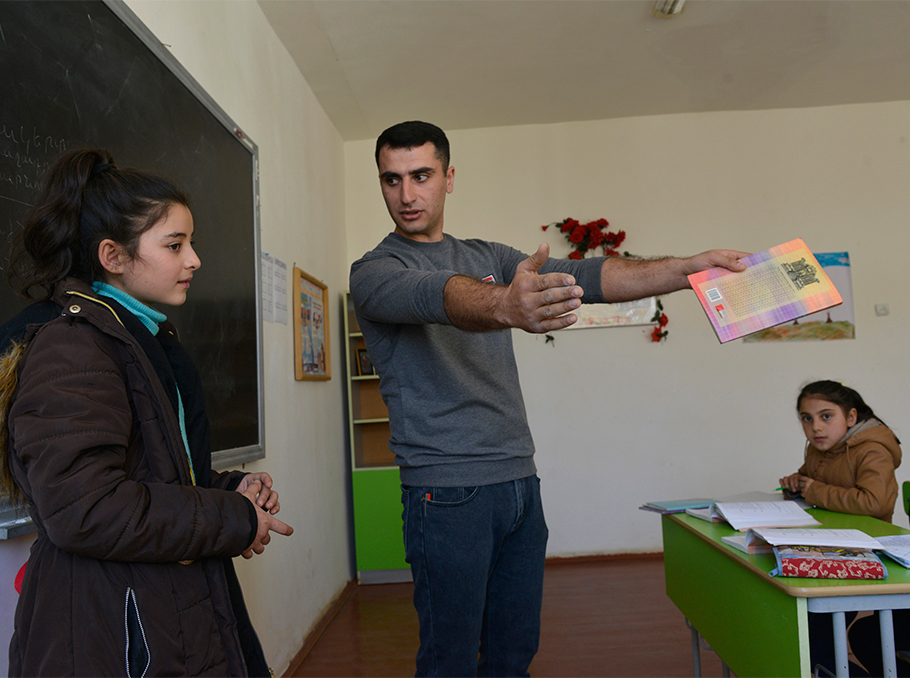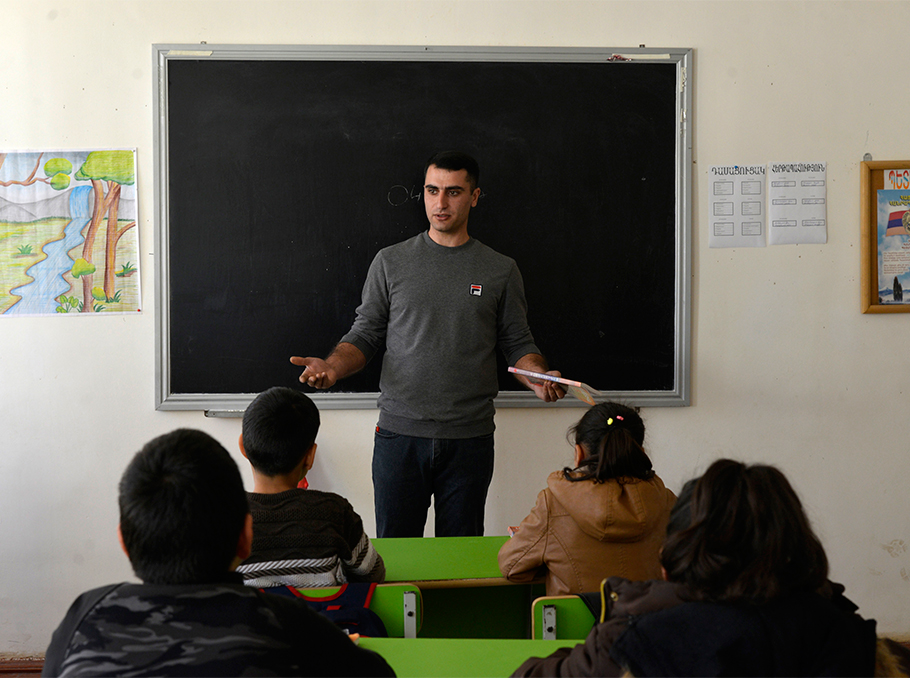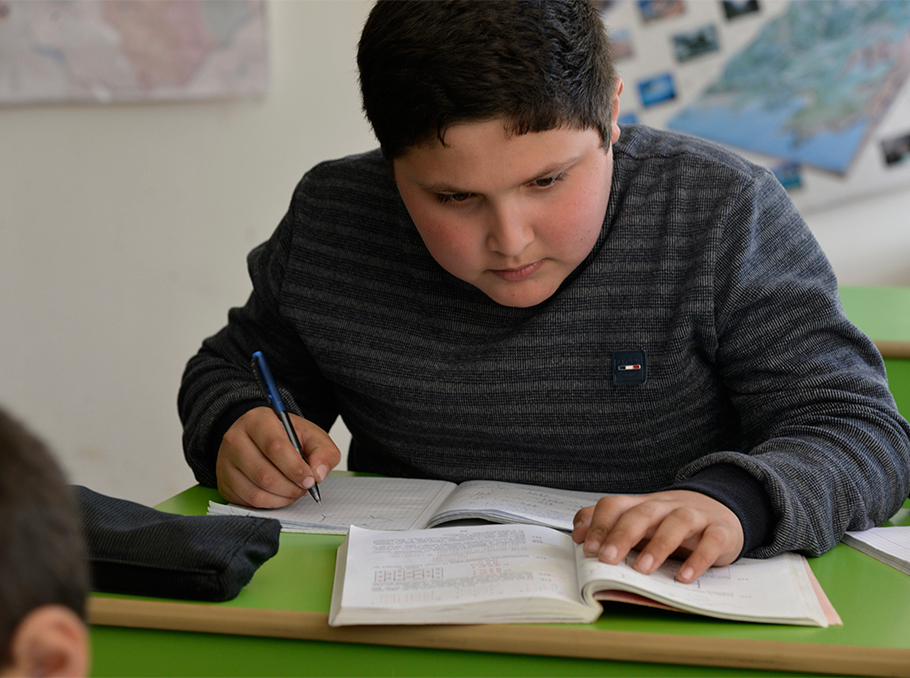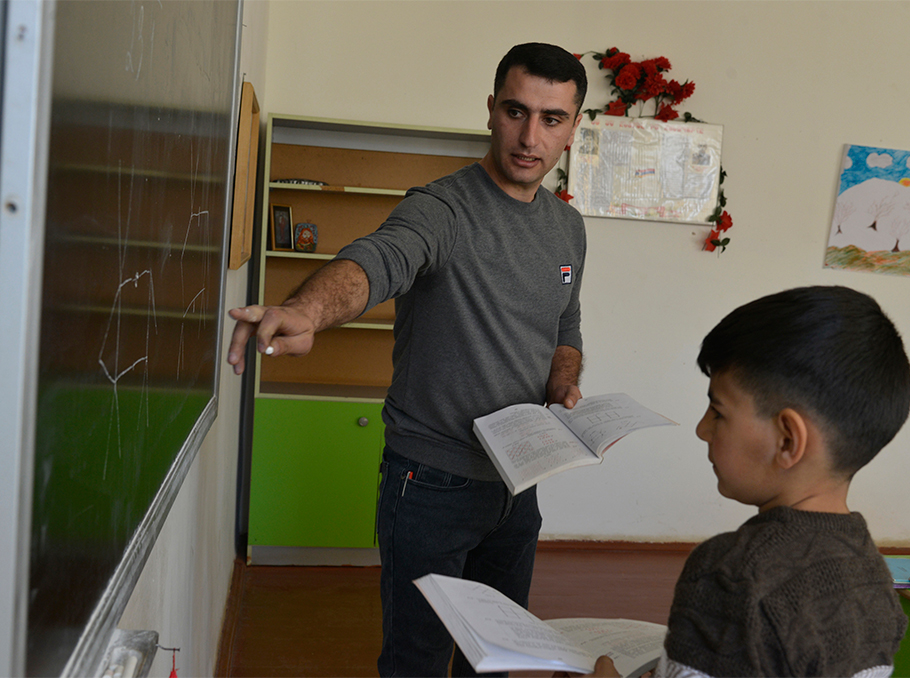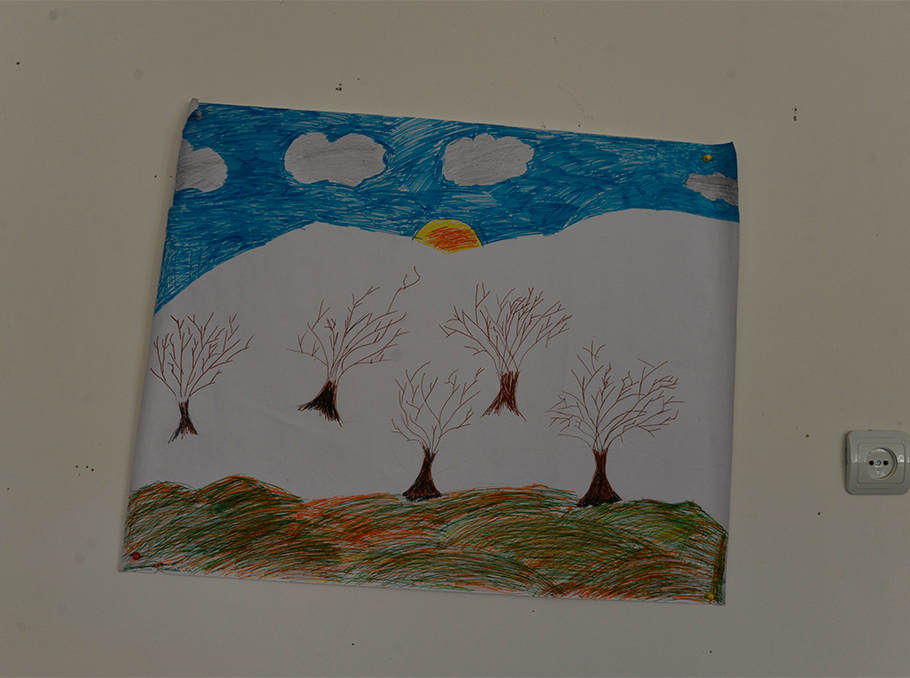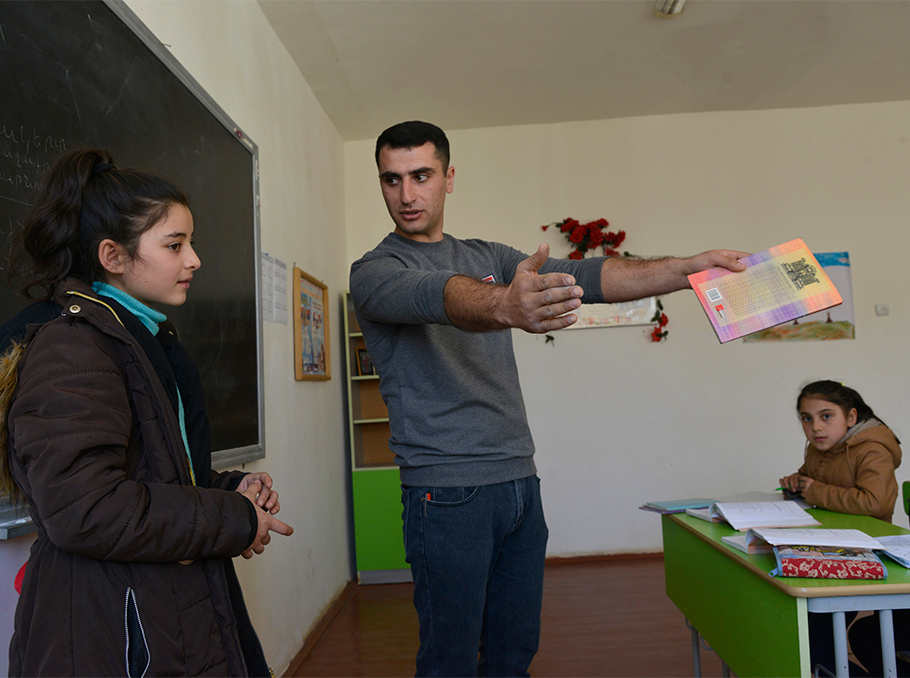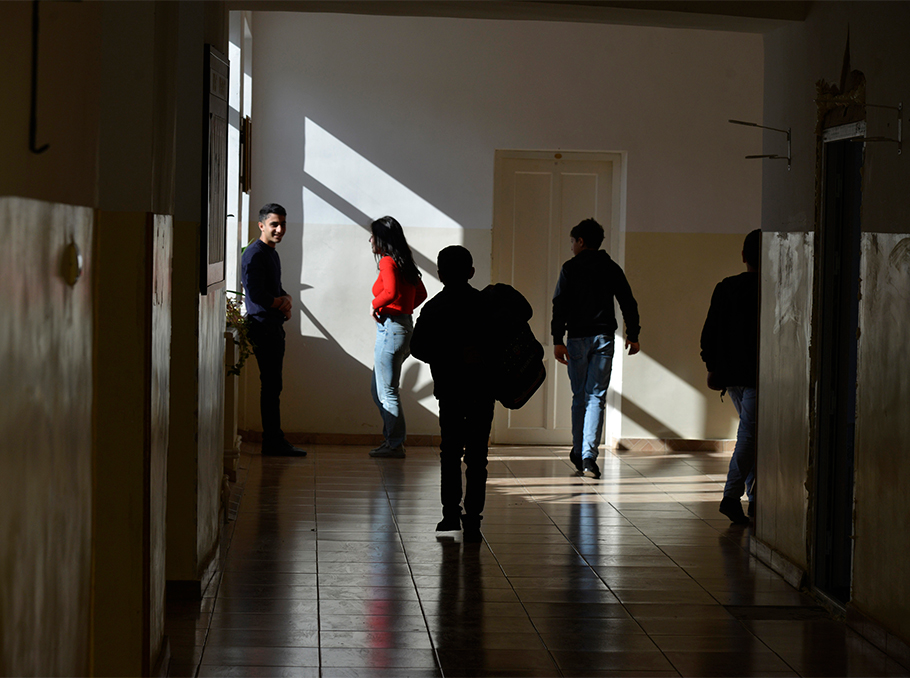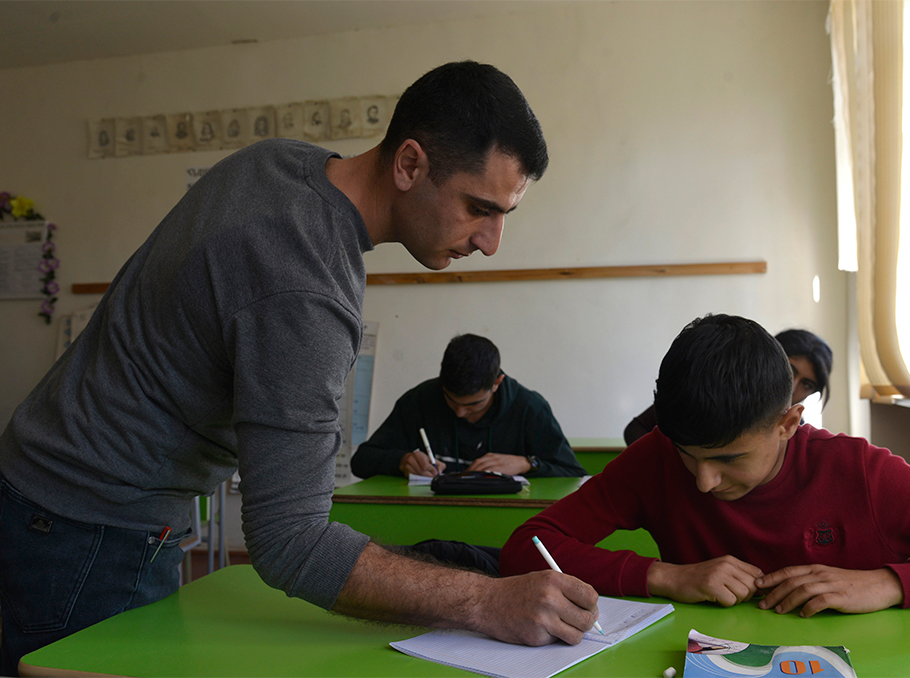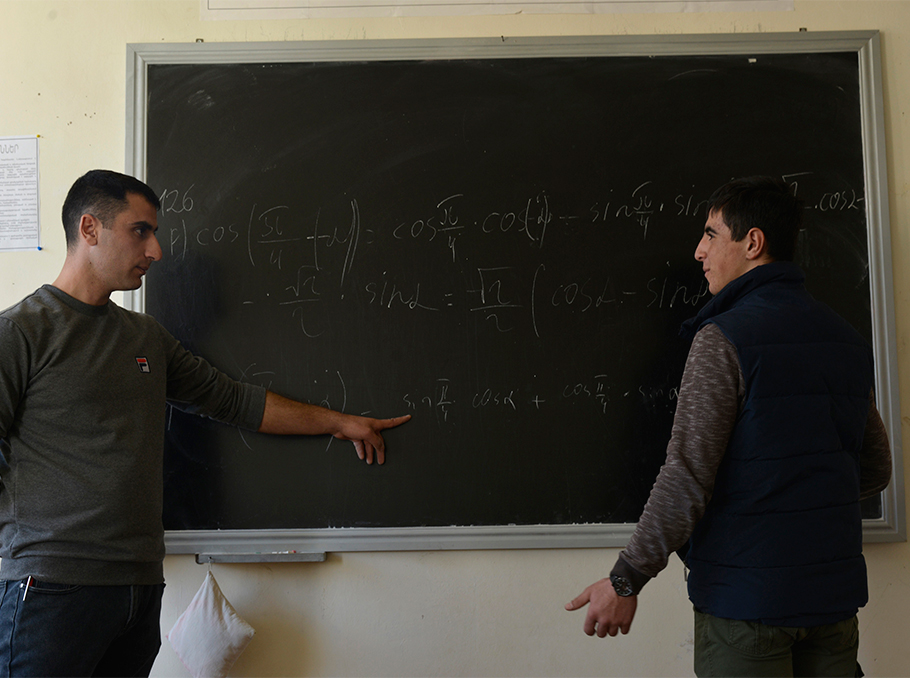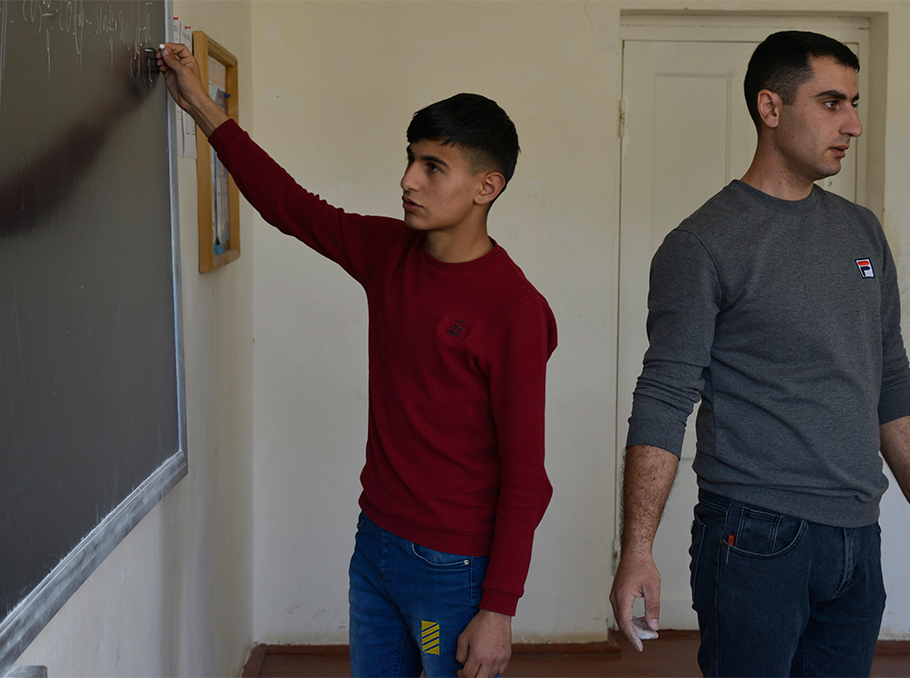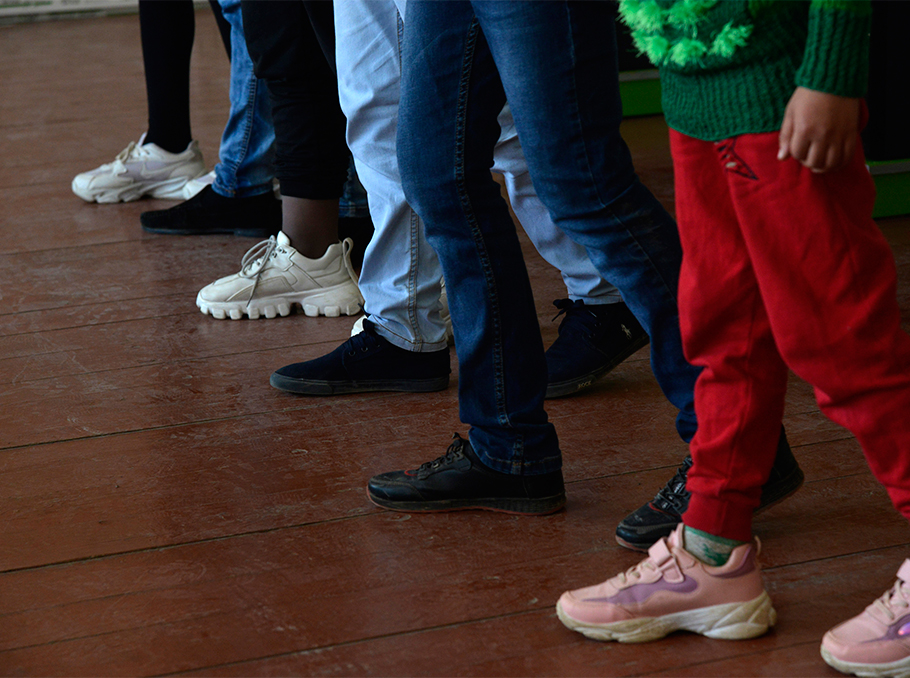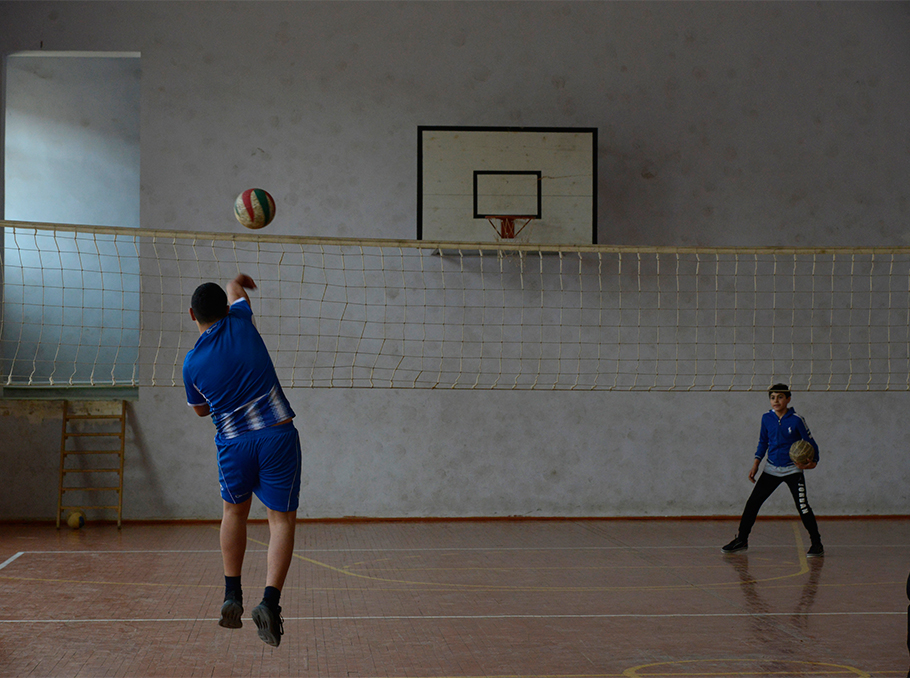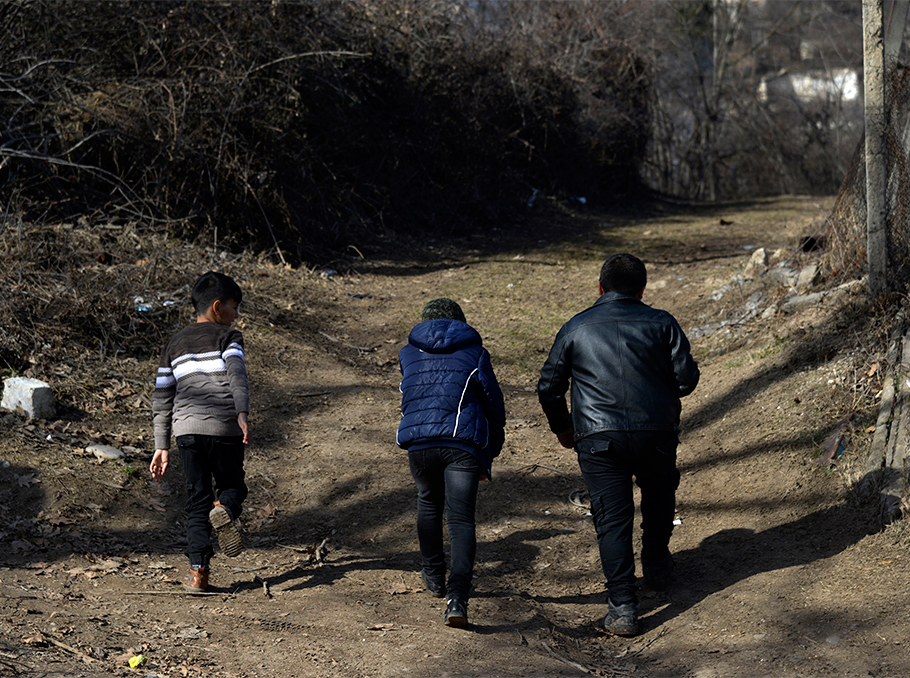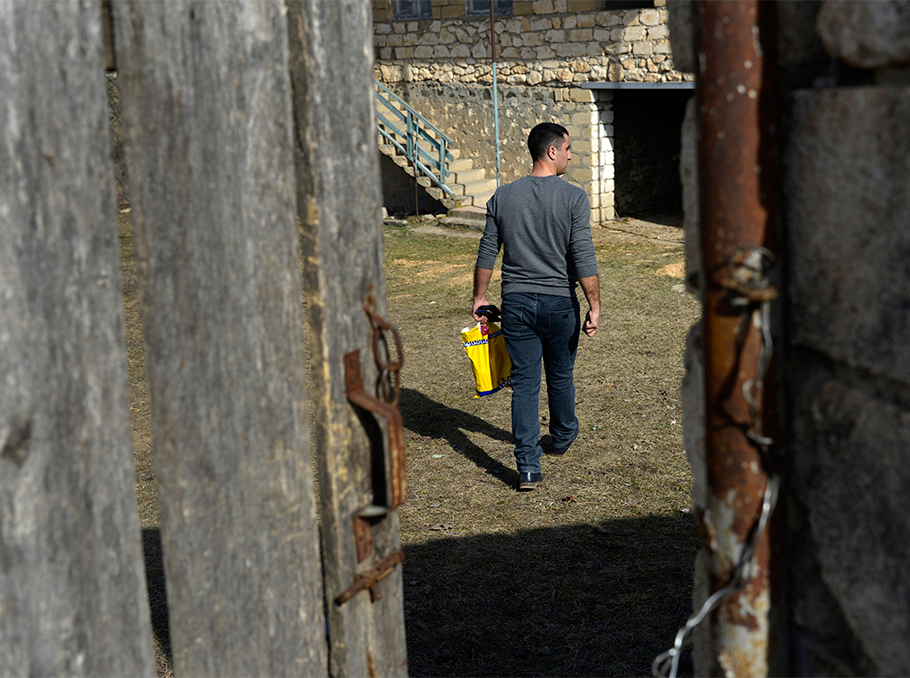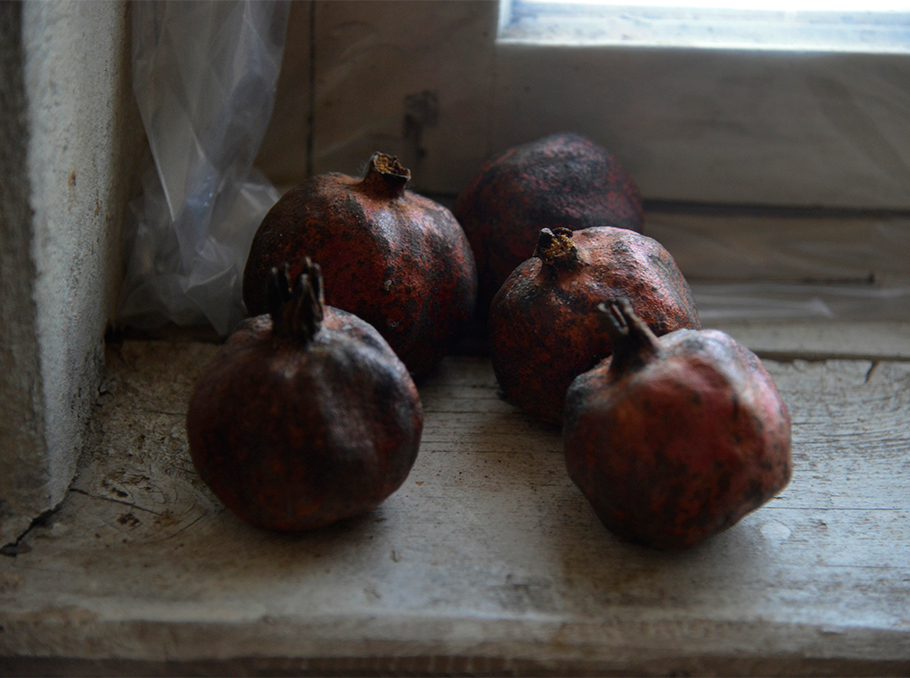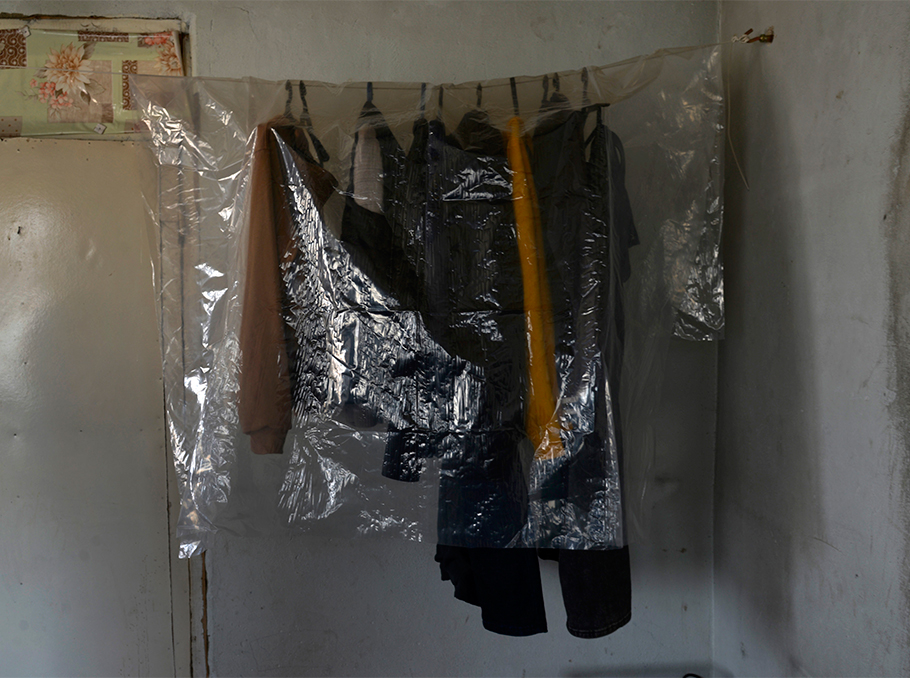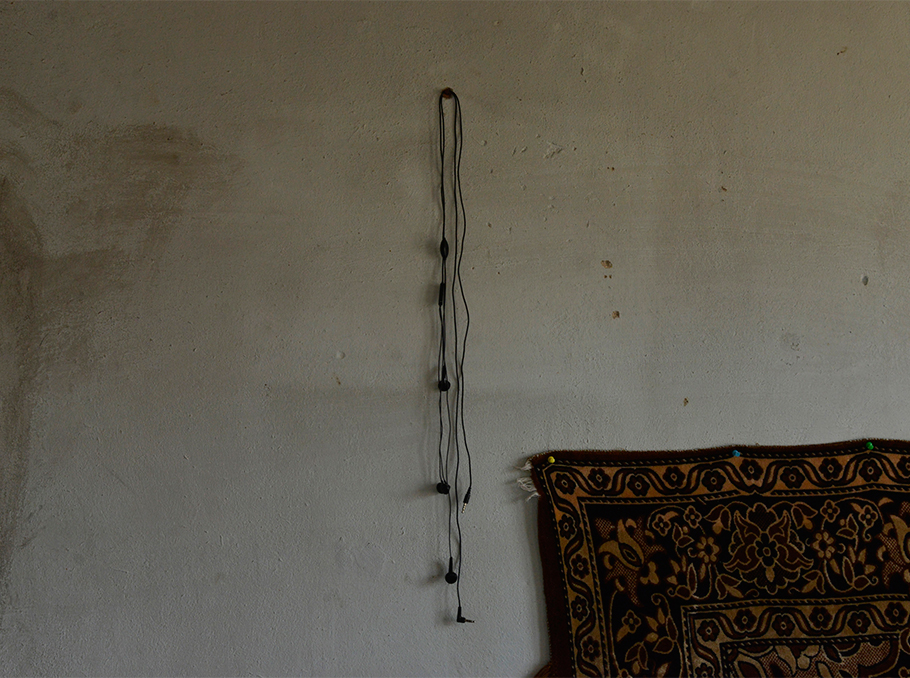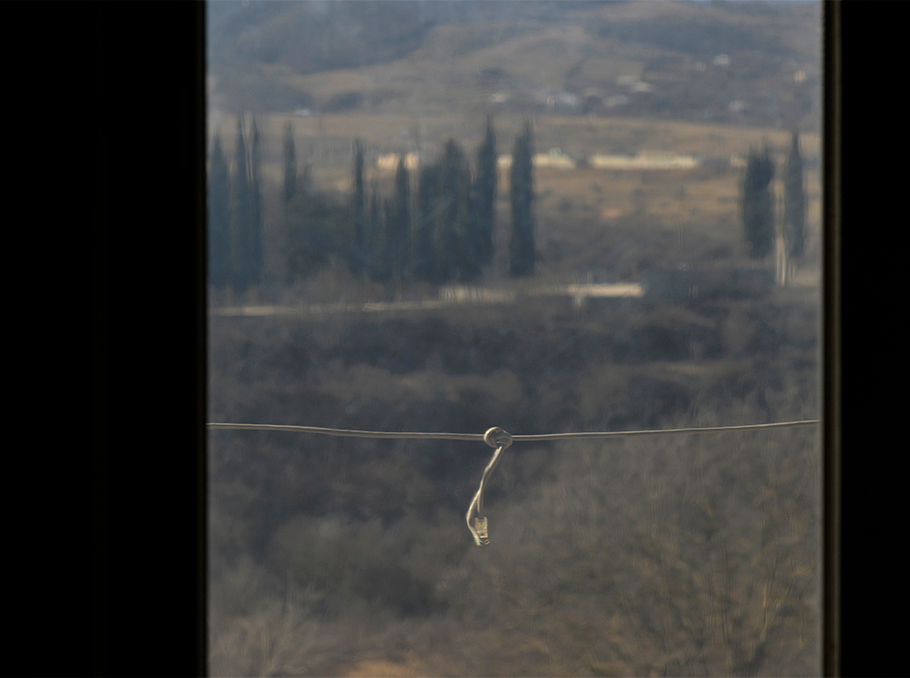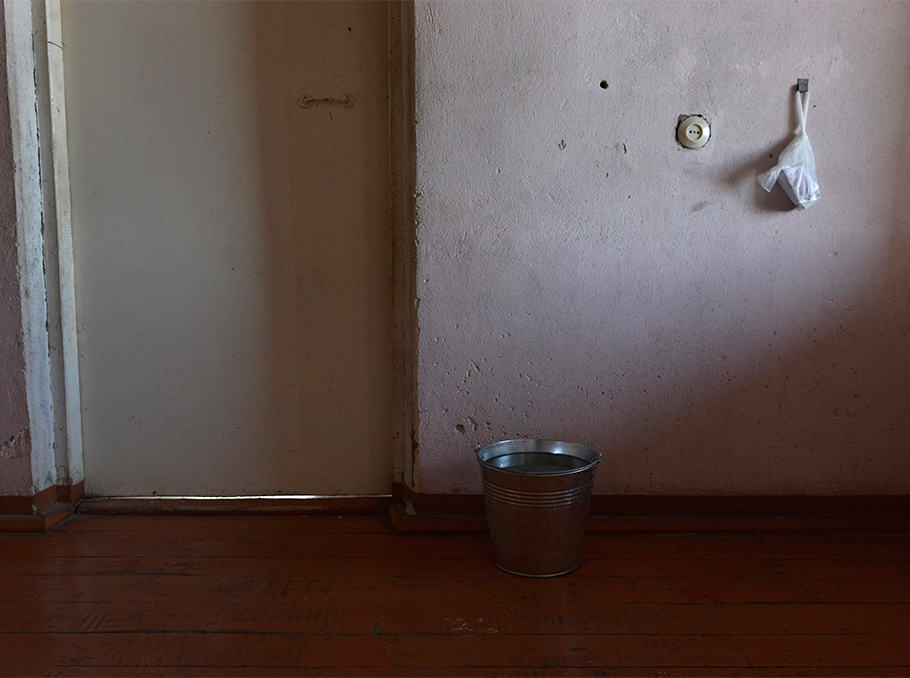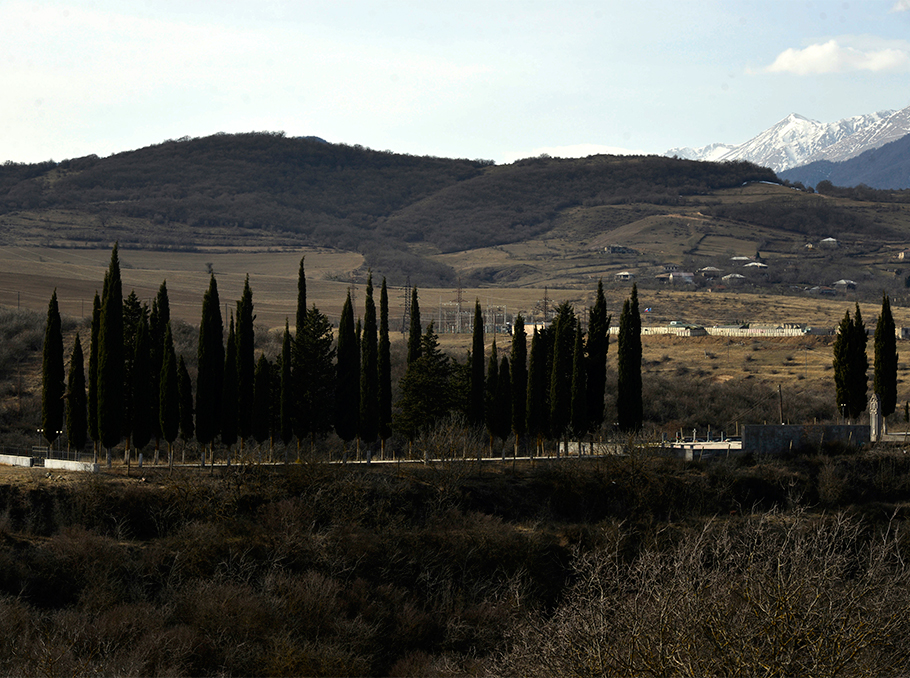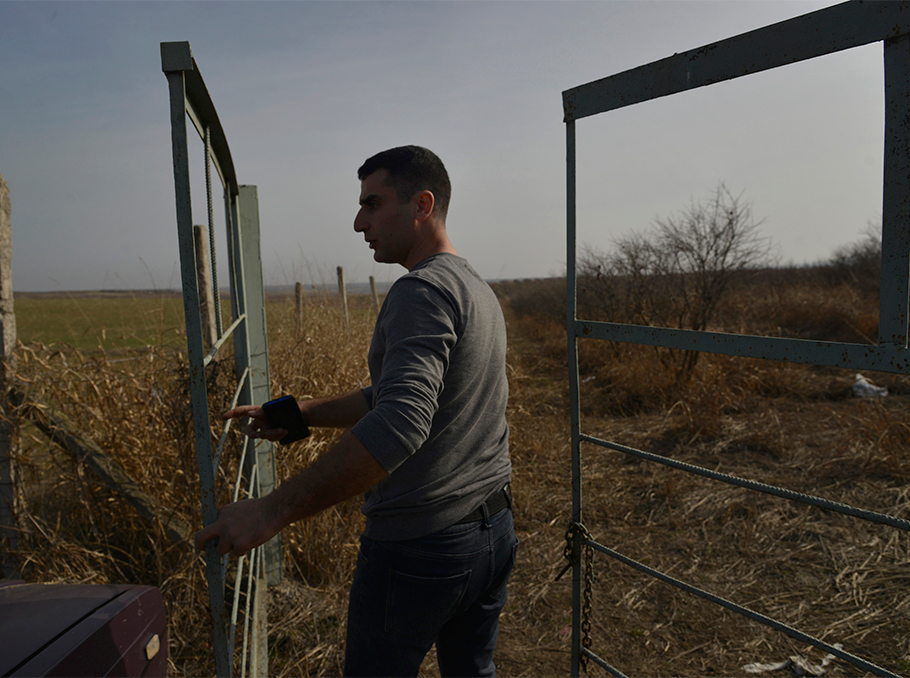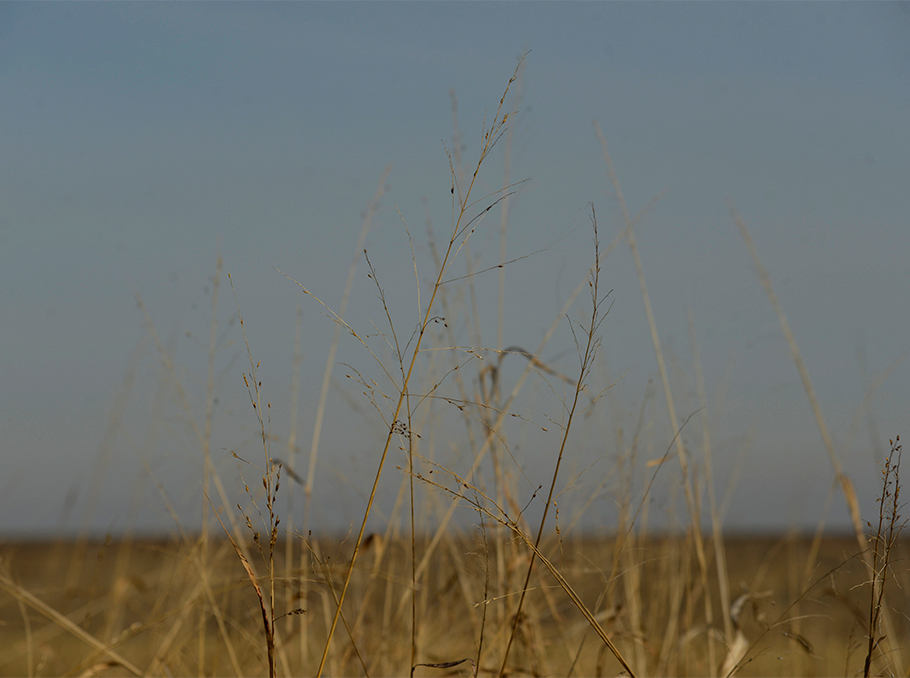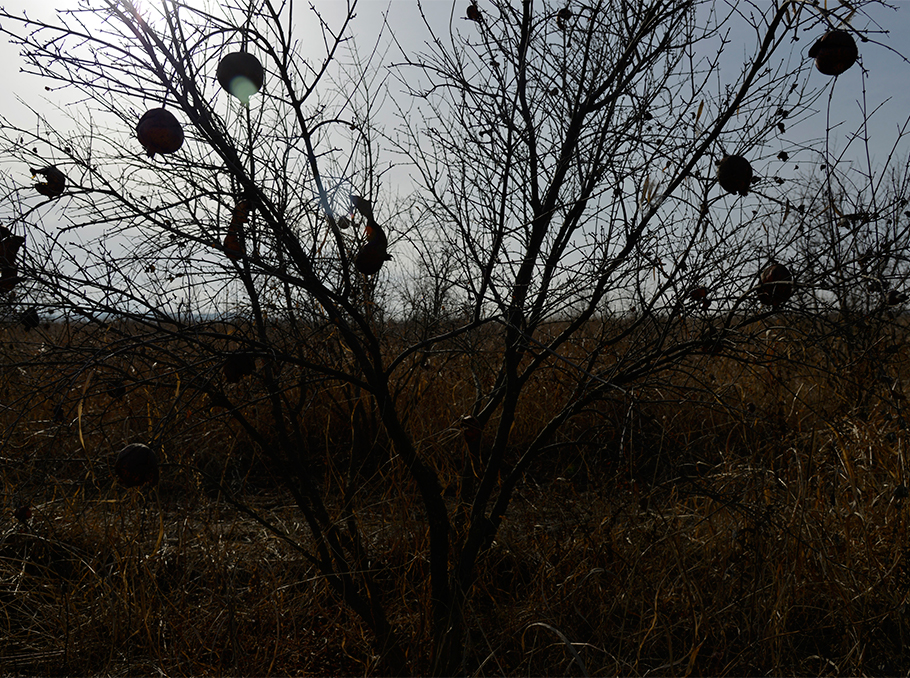Sometimes, you can hear the explosion of unused weapons in the silence of fields and gardens not far from Martakert. The sappers are working.
Sporadic pomegranates can be seen in the big garden - cracked, dried, but still so sweet.
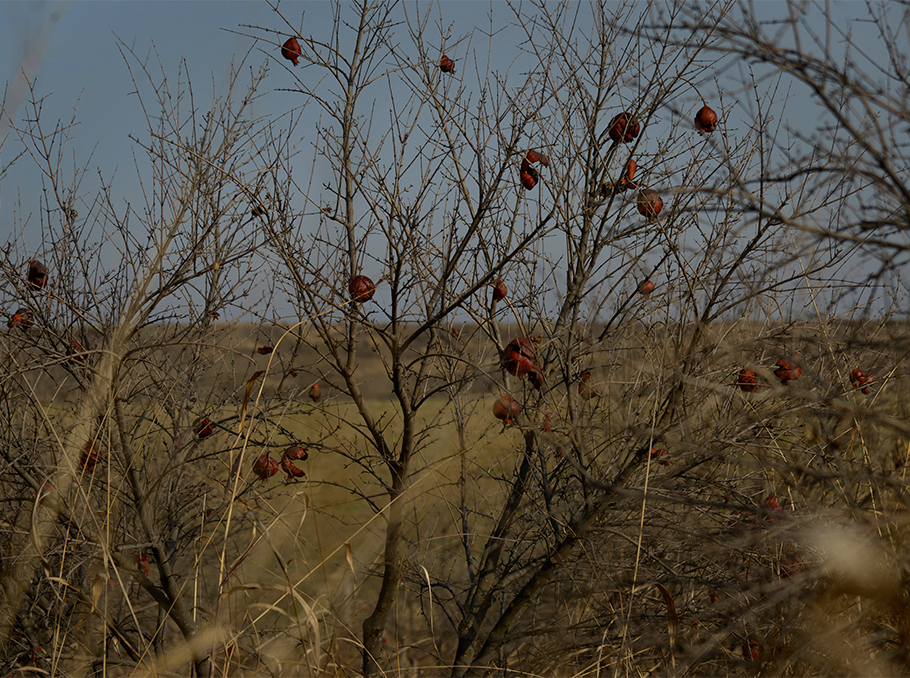
Photo: Vaghinak Ghazaryan/ Mediamax
“It was the first year that I had to get a harvest, it would be 5-6 tons. In early September, I managed to collect half a ton. But I am not upset, peace is the most important thing. I will get a harvest next year.
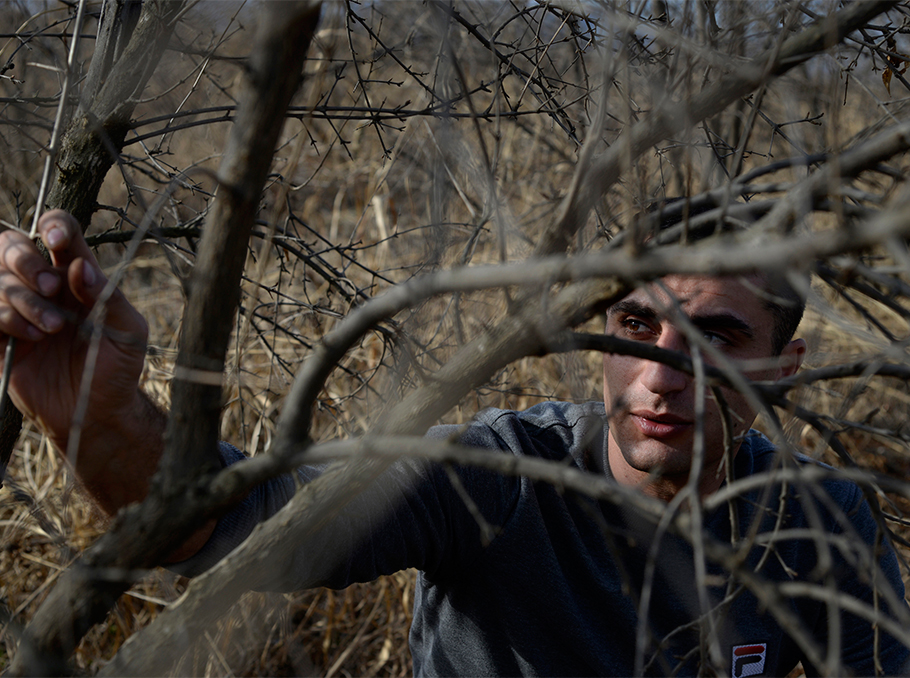
Photo: Vaghinak Ghazaryan/ Mediamax
Artavazd Boyajyan bought the pomegranate garden in 2020. He says the pomegranate tree means more to him than the fruit tree. He already knows all its nuances. Every day, he hurries to the garden after finishing classes at Maghavuz school.
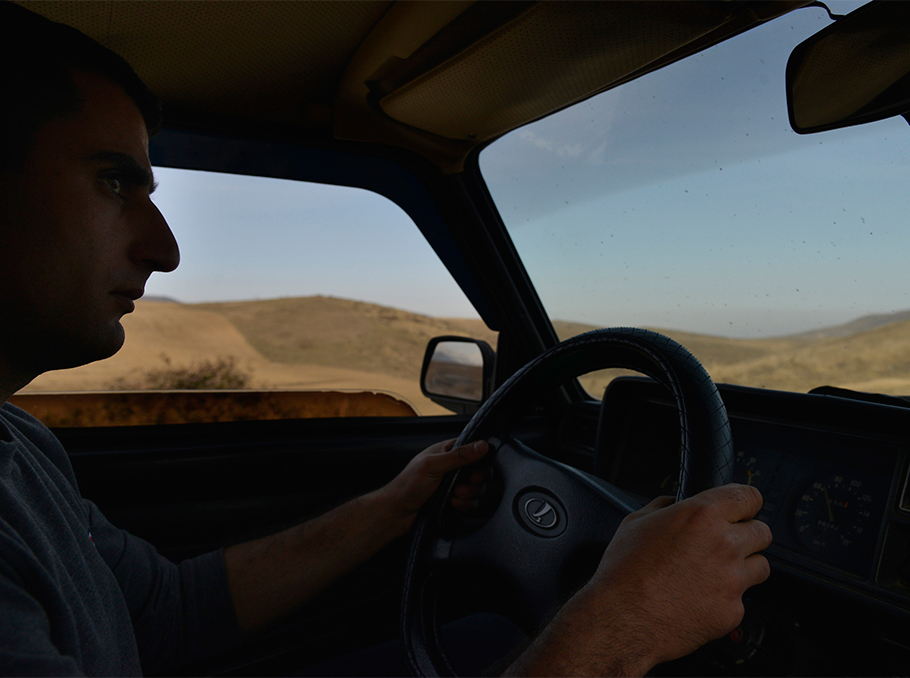
Photo: Vaghinak Ghazaryan/ Mediamax
“We have distanced ourselves from nature. Life in Yerevan is stifling. Here, when the flowers are in bloom, the wind blows the leaves away, you just sit in silence listening to the birds chirping, and enjoy it all. What else does a person need?”
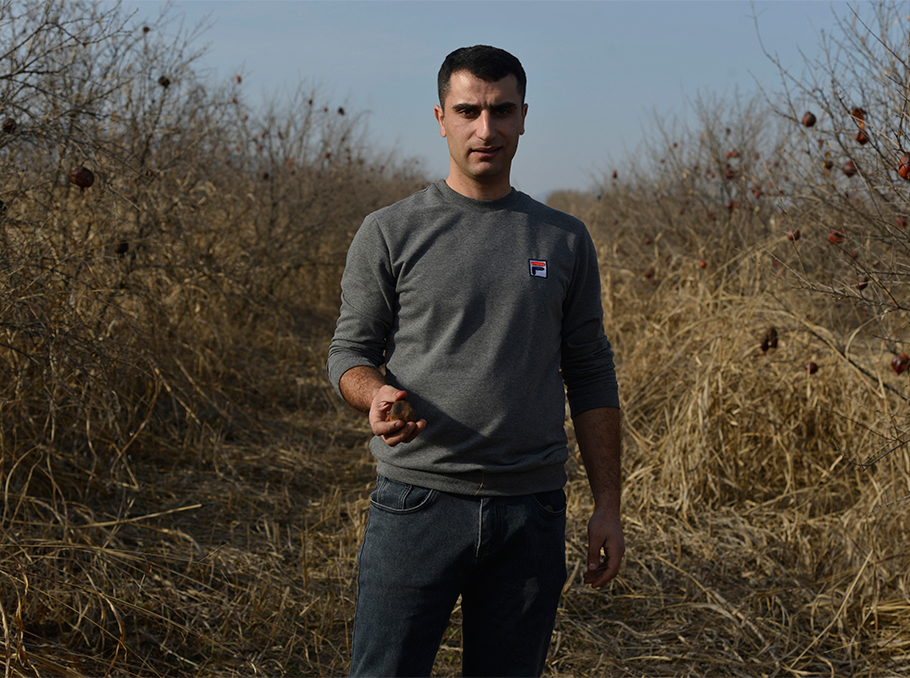
Photo: Vaghinak Ghazaryan/ Mediamax
City life is not for Artavazd. He is from Panik village of Shirak region. After graduating from University in 2018, he applied to Teach For Armenia program to move to Artsakh, to live and teach in the village again. When he learned that he was going to Stepanakert Physics and Mathematics School, he was surprised.
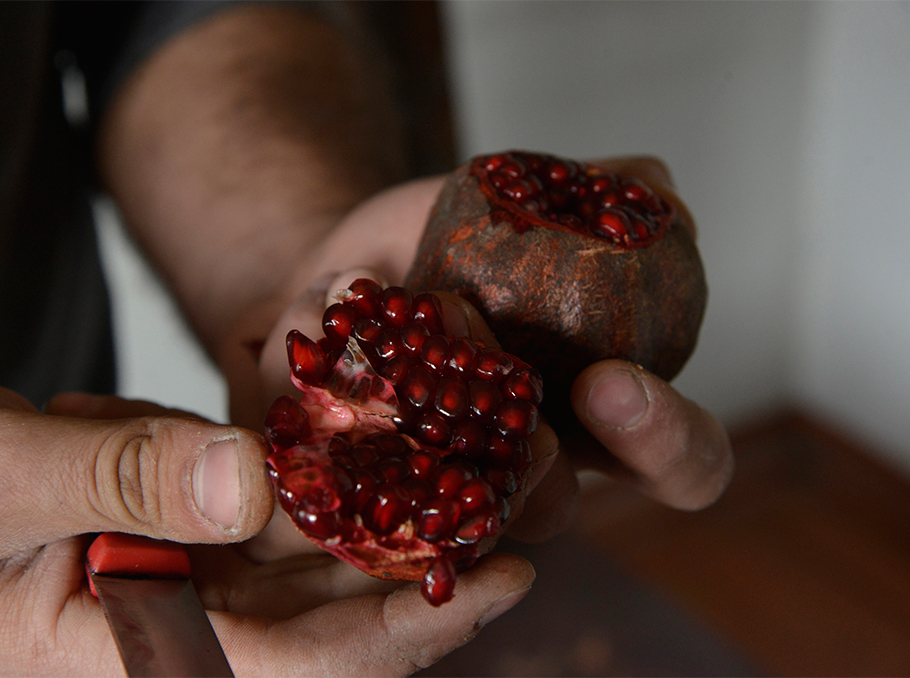
Photo: Vaghinak Ghazaryan/ Mediamax
Teaching here for 2 years has been an important experience. He decided to stay longer in Artsakh. Teach For Armenia offered to extend the program for a year, and Artavazd moved to the village of Maghavuz of Martakert region.
“The villagers welcomed me warmly. They would stop and ask me: “Are you the math teacher from Armenia? We are glad you are here, how can we help you [“qyomag anel” in Artsakh dialect]?” I would say: “Everything is OK [Lokh lava].”
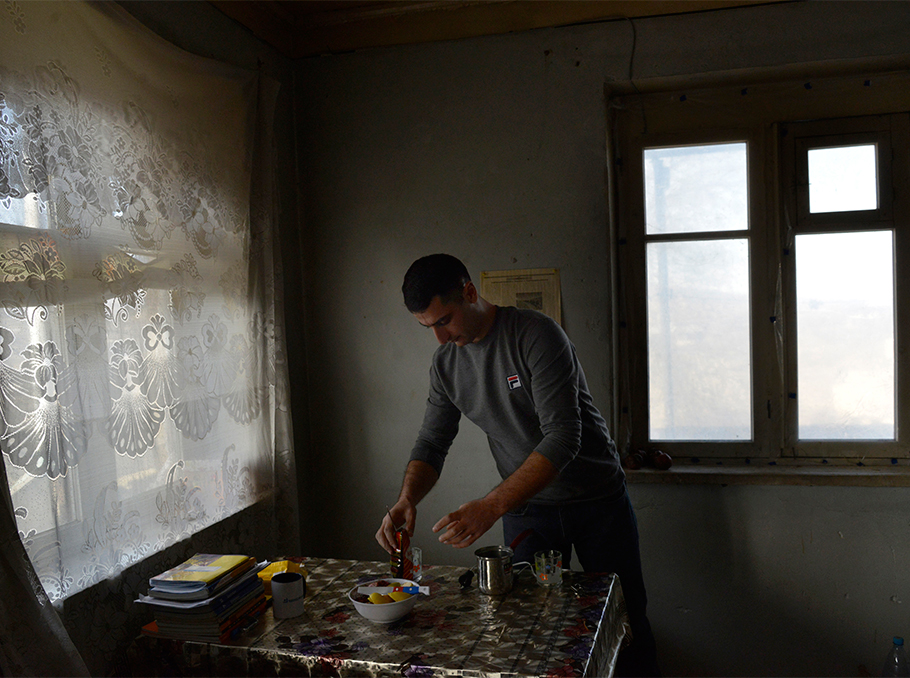
Photo: Vaghinak Ghazaryan/ Mediamax
Artavazd taught high school students in Stepanakert, and they solved serious mathematical problems. When he found out he would be the 5th grade homeroom teacher in Maghavuz, he was really worried about how he would communicate with them.
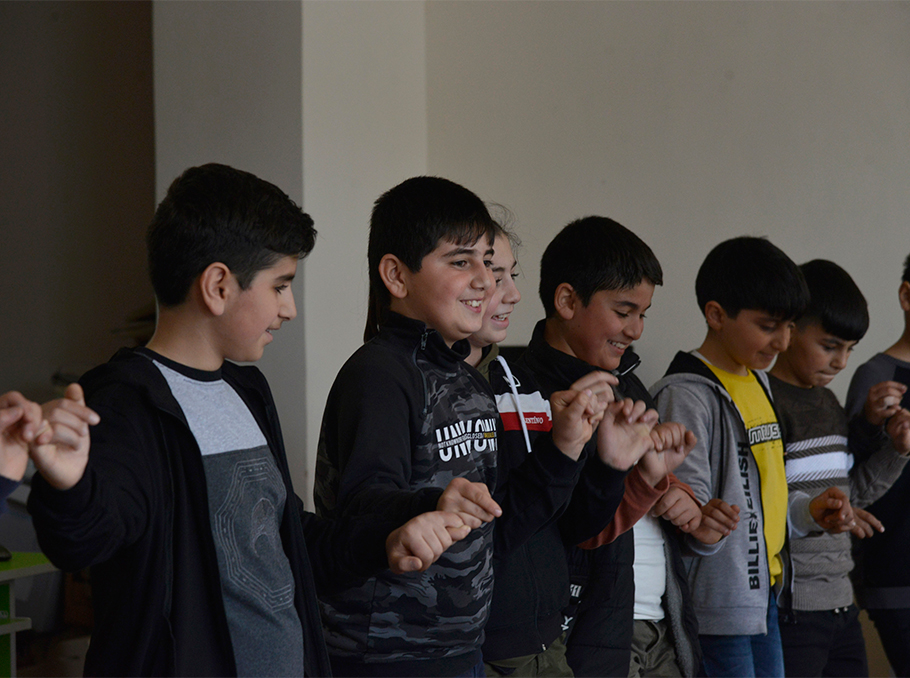
Photo: Vaghinak Ghazaryan/ Mediamax
“During the first days, I would look at the children and think: “How am I going to talk to them, what am I going to say so that they understand me correctly. Then one day they were solving a problem and everyone did really good, and one of the children said happily: “Comrade, but you are a very good teacher.” I was surprised, because nobody has ever said anything like that to me. I have different feelings and emotions. It is not just about teaching, it’s life.
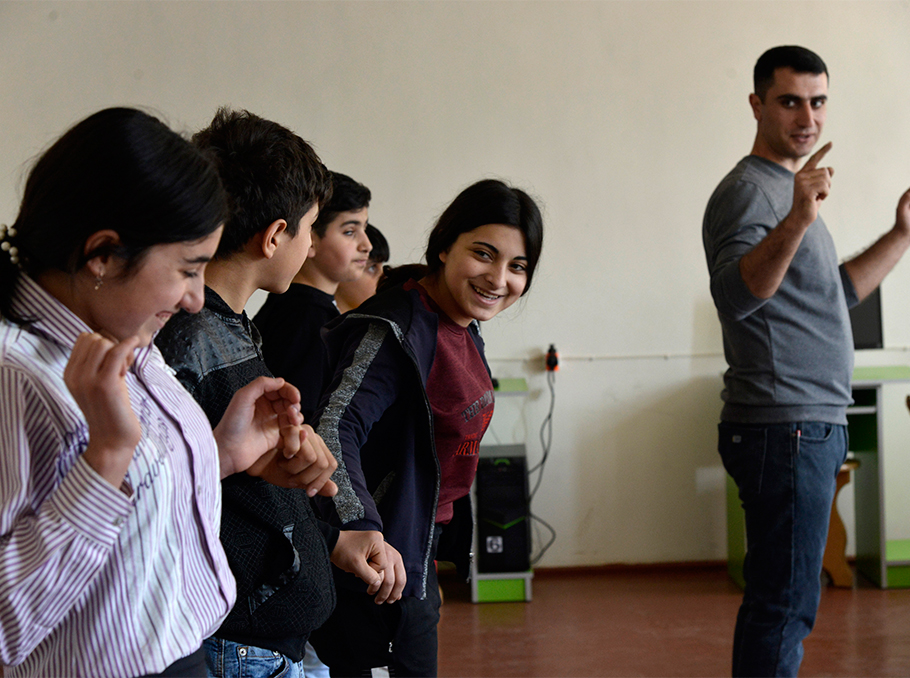
Photo: Vaghinak Ghazaryan/ Mediamax
Communication becomes very easy when you discover the unique nuances of working with children. But you should not think that everything is already good. You should always think about how to overcome the road?”
“He is very responsible and dutiful,” says Vachik Avanesyan, the school principal. Artavazd’s arrival in Maghavuz not only solved the problem of a math teacher, but also helped find the answer to a very important question: how to make children love reading.
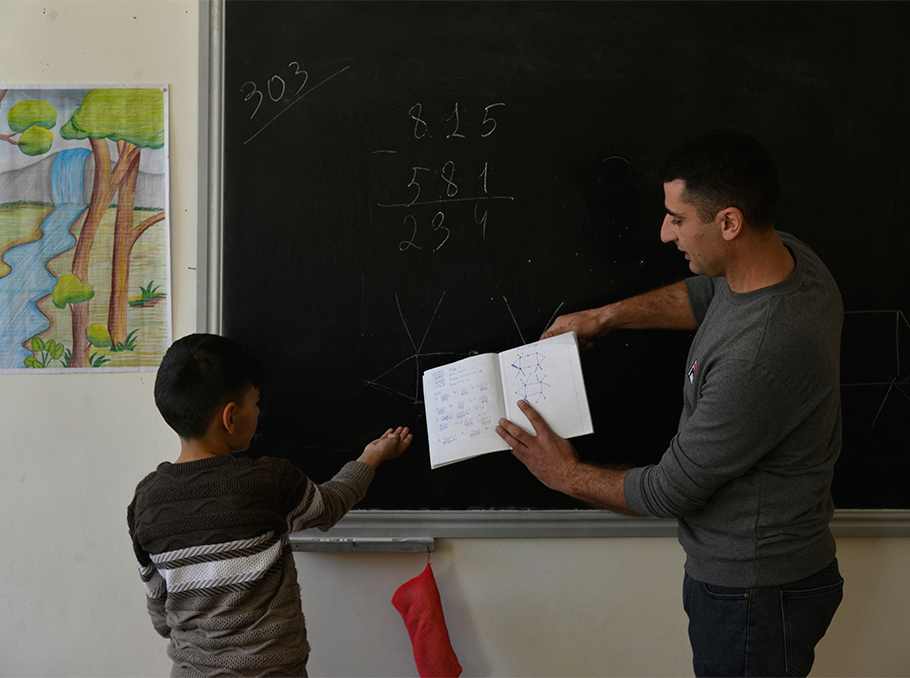
Photo: Vaghinak Ghazaryan/ Mediamax
“It has been difficult for literature teachers to arouse students’ interest until now. We always wandered what to do, what method to choose to develop reading at school, and there were always reasons that made it impossible. But, it turns out, it is possible. The math teacher made it possible, he managed to pass on his love of reading to his students. He is always surrounded by children; he doesn’t even come to the teachers’ room during breaks. I am glad to have such a teacher and I will keep him here as long as possible.”
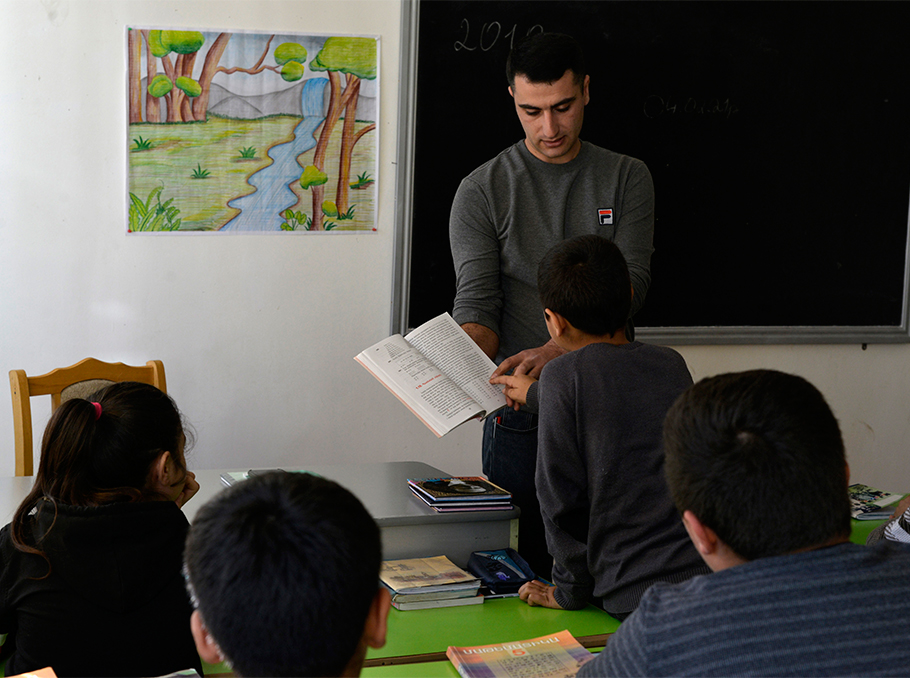
Photo: Vaghinak Ghazaryan/ Mediamax
Artavazd has visited many villages of Artsakh before coming to Maghavuz, and he is sure that the lack of books is a big problem everywhere. What they have are Lenin’s collective works and Soviet publications that have nothing to do with children, or interesting but unattractive books with torn pages and worn cover. He made some posts on social media and started collecting books - colorful, illustrated and so attractive that he even became envious because he didn’t have such books growing up.
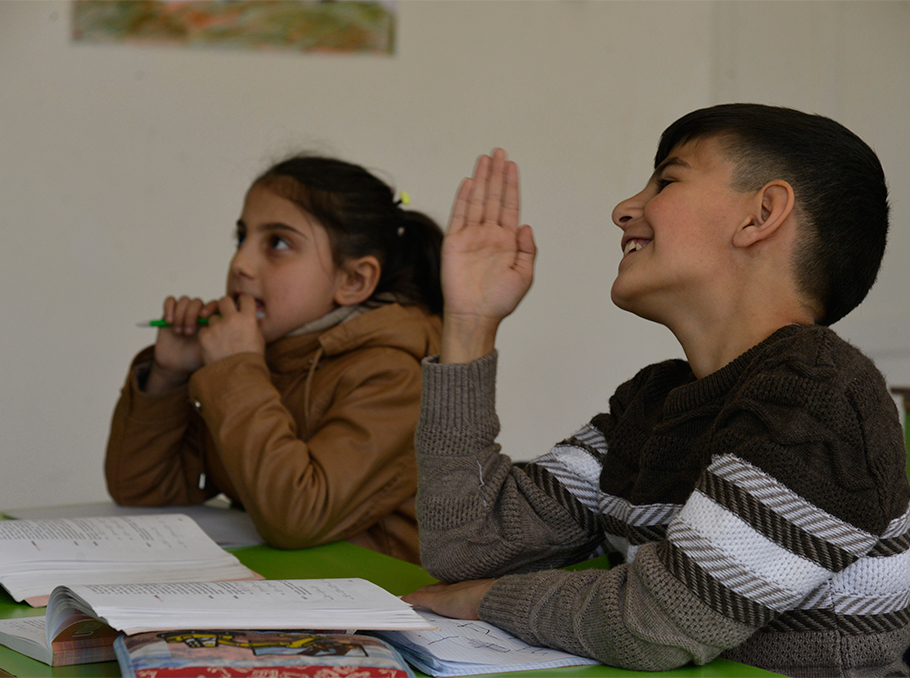
Photo: Vaghinak Ghazaryan/ Mediamax
“When I brought the books, the children got excited just seeing the covers and the pictures - it was a whole new world. We needed such books. After reading, you should ask the children what it was about, which part they liked the most. They start telling with enthusiasm. For the first time, we decided to go get a book during recess with 5th grade students. We all go in a row, and when somebody sees us, they wonder where we are going. Now I don’t say anything to them. When I don’t see them during recess, I know they went to return the book and borrow a new one.”
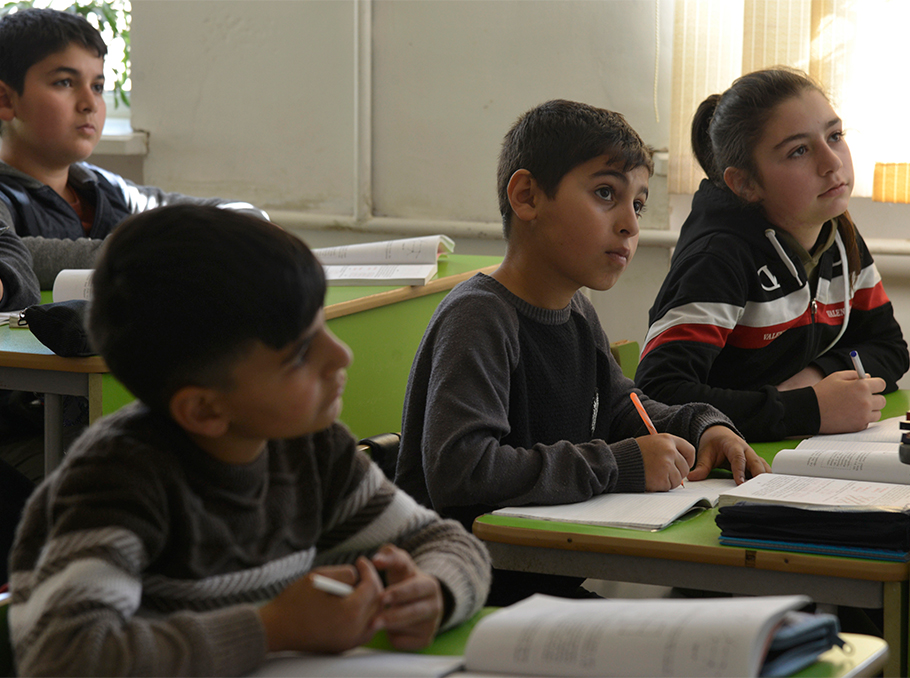
Photo: Vaghinak Ghazaryan/ Mediamax
We have got used to Artavazd’s presence in the village and at school so much that when I ask the children why Comrade Boyajyan arrived in Maghavuz from Panik, they look at each other surprised and start guessing: “So that we learn, so that we grow up and be smart”. They are simply happy that their comrade is with them without any reasons.
Artavazd is going to stay in Artsakh and especially in Maghavuz for a long time. Not even the war, nor the Azerbaijani positions that are clearly seen in the distance have changed his plans.
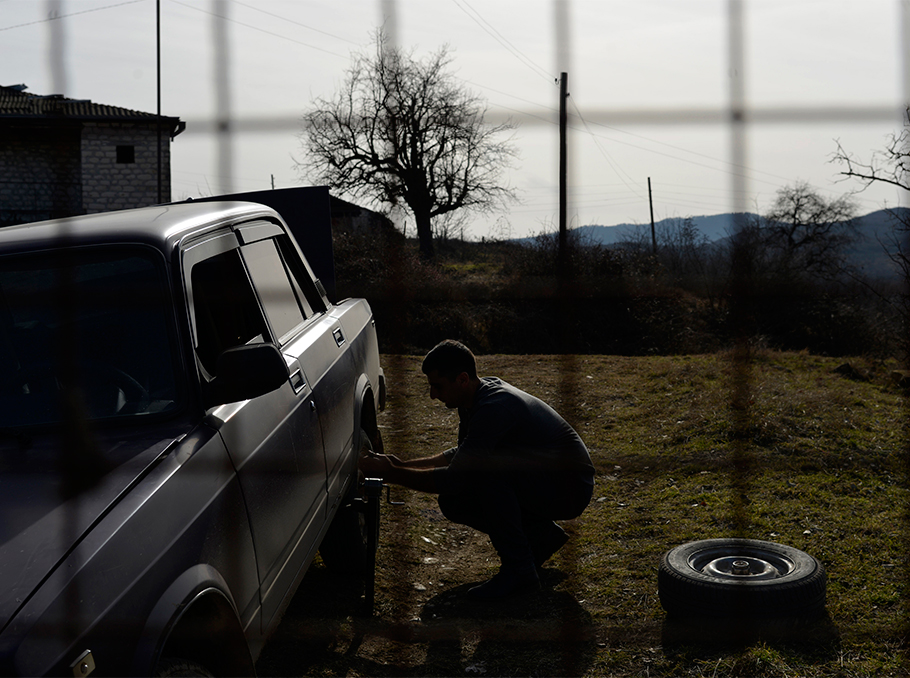
Photo: Vaghinak Ghazaryan/ Mediamax
“It was clear before the war that I would stay in Artsakh, then it became even clearer that this is my place. At first, of course, you think: ‘Is it possible that the land you are currently living on won’t be yours after a while’. But once the emotional moment passes, you realize that no, this is your place, you want to stay here not because you are doing some sacred duty or taking a heroic step, but because you like it, your home is here.”
Artavazd is a programmer, but he has never worked in this profession. He studied pedagogy while teaching. “You need many years of work to become a teacher, a lot of experience to feel the child. During three years he realized that there are many problems in the school and they require systemic solution: several individuals cannot change much.
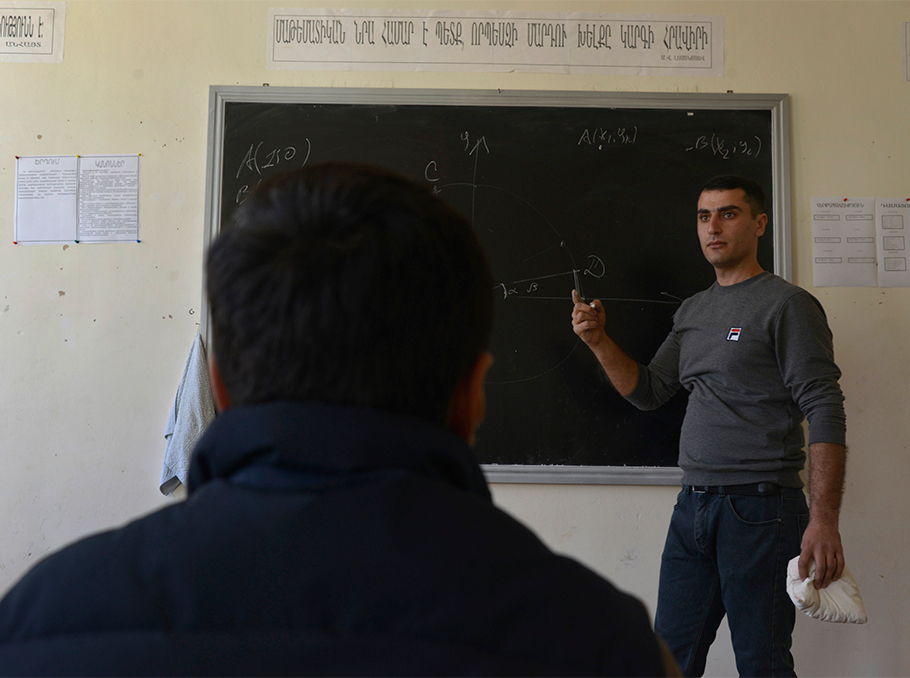
Photo: Vaghinak Ghazaryan/ Mediamax
“First of all, we need to change our attitude towards education. The teacher is ignored. If he makes a mistake, there will always be somebody to punish him, but no one is inspired by his success. We need a school for training the right teachers. Whatever the ministry decides, it is the teacher who localizes that decision in the classroom. He must be well-developed to be able to use that tool, taking into account the specifics of each class.
We all want good students to make the lesson easy. But the children are from different social groups, with different problems and abilities. Working with a well-educated child is easy, but what about the others? These children are a part of our society, we must take care of them.”
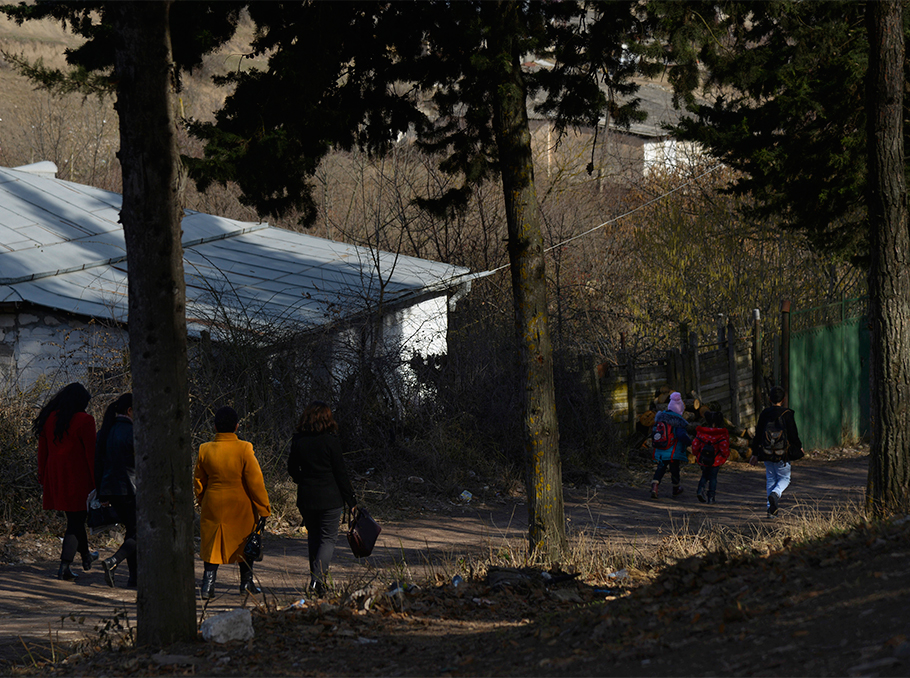
Photo: Vaghinak Ghazaryan/ Mediamax
No matter how much he likes living in the village, Artavazd feels the lack of contacts. He used to attend national dance classes and tourism courses in Stepanakert after school, go for a walk in the city. “I love Stepanakert at night very much; it’s quiet and bright. Now I don’t know what the night is like there.”
After the war and losing territories, the road from Maghavuz to Stepanakert became longer- two hours in one direction. He rarely meets friends and students from the capital.
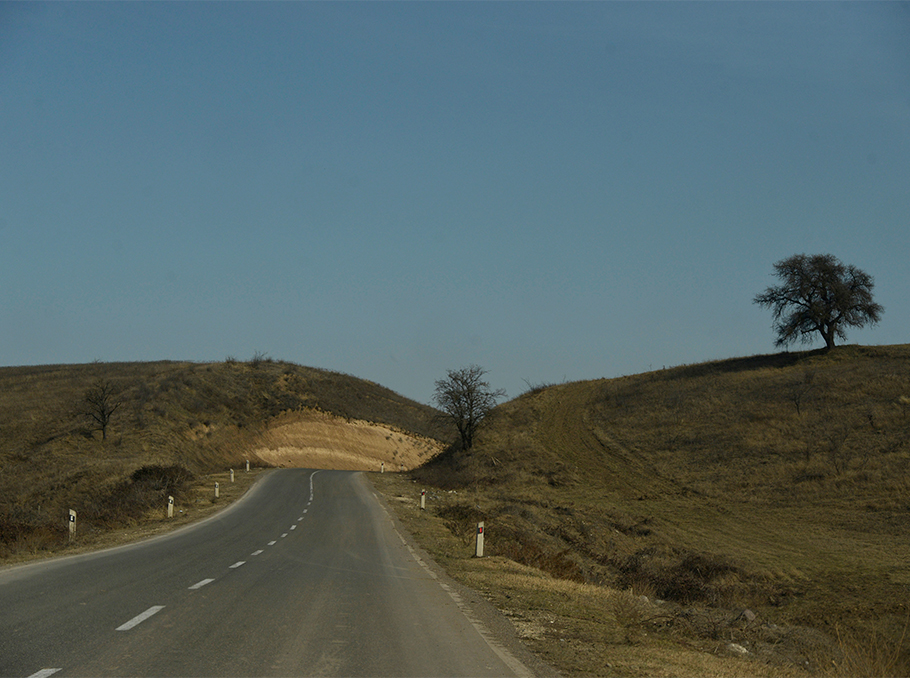
Photo: Vaghinak Ghazaryan/ Mediamax
“It is difficult to get to Stepanakert now, but I go when I have a chance. We missed each other very much. I posted a picture on Facebook with my 5th grade students recently, and the response from Stepanakert was quick: “What about us?”
He promised that once the “Trtu” club, which he has founded, resumes its activities, the students from Stepanakert would become the first participants.
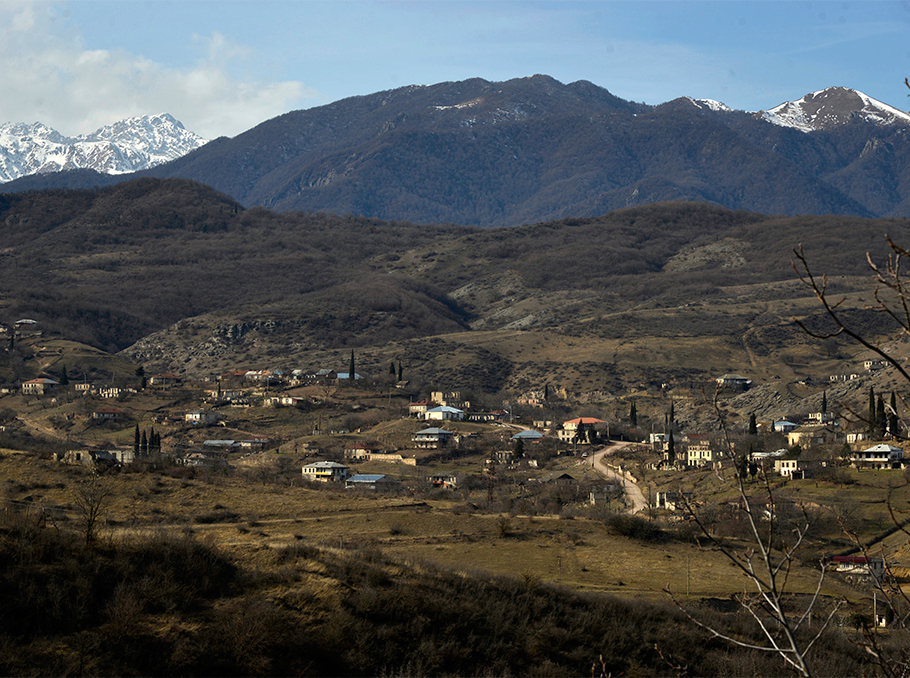
Photo: Vaghinak Ghazaryan/ Mediamax
“The biggest problem for me is that our children don’t know their homeland well, they know nothing outside their community. If a child doesn’t walk the roads of his homeland, doesn’t know his land, how can he love his homeland, how can he fight for that homeland later, how will he stay in his community? Our educational program must first of all familiarize the children with their homeland. I have not heard clearly what strategy we have for our first grader students. We want them to be good specialists, to make money, and that’s it. The system of values is based on money.”
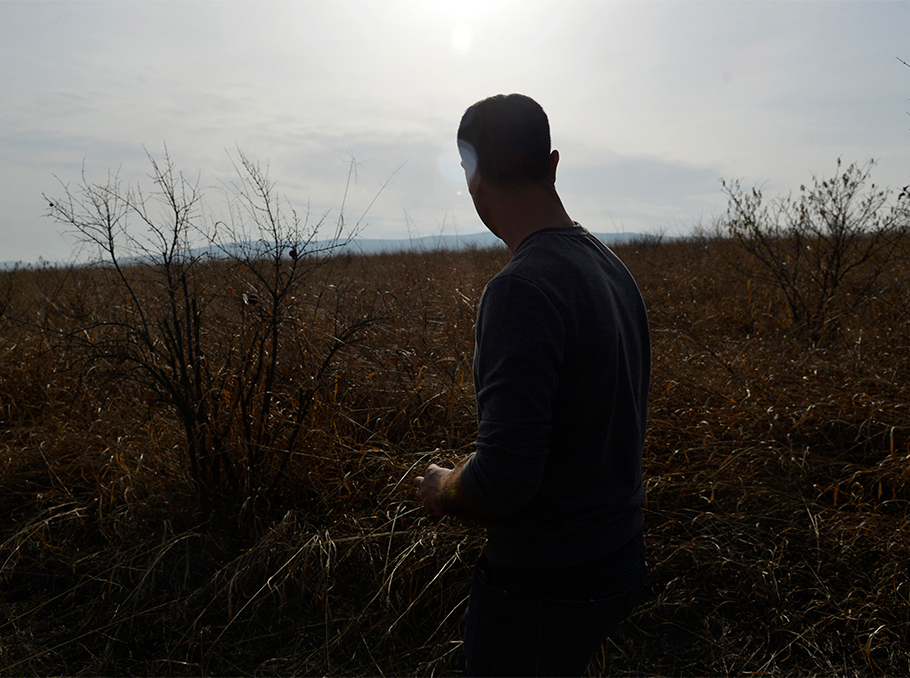
Photo: Vaghinak Ghazaryan/ Mediamax
Artavazd opened reading and mathematics study groups at school, “In cooperation with the Artsakh office of the Hamazkayin Armenian Educational and Cultural Union, he teaches national dance. He applied for grants to boost life in the village and create jobs for young people. He wants to build a library, a guest house and an antiques cafe, he wants to open a travel company. The beekeeping program is already being implemented.
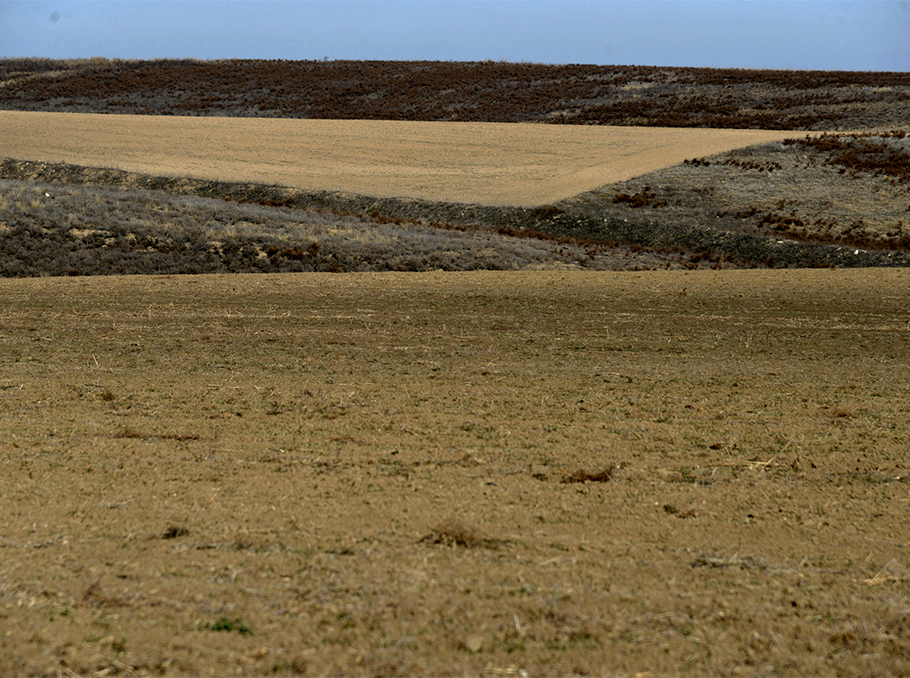
Photo: Vaghinak Ghazaryan/ Mediamax
“Sometimes, I think for a moment that I have encouraged the children, but what if a new war starts again?” It both breaks and gives me hope. Today we have compatriots who don’t care whether we have lost our lands, because they were not there. When you walk, see, love, the land is already pulling you in, you understand what you have lost or will lose, you realize that you should be here at least once a month or once a year. So, I just tell people, welcome to Maghavuz.”
Lusine Gharibyan
Photos by Vaghinak Ghazaryan (especially for Mediamax)









